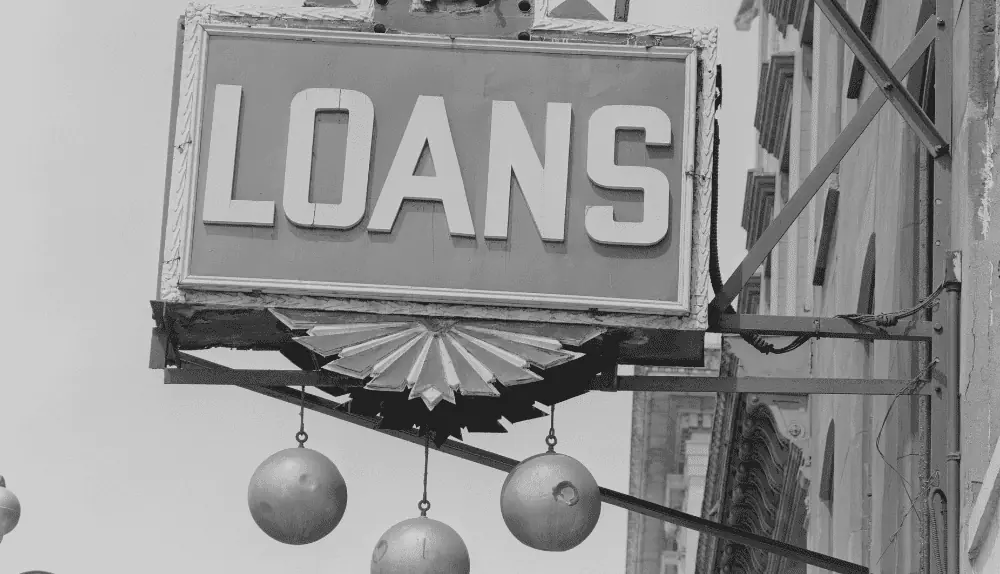Are you an aspiring entrepreneur with grand visions of launching your own business? Or perhaps you’re a seasoned business owner looking to expand your operations and take your enterprise to new heights. No matter where you are on your entrepreneurial journey, one thing is certain: commercial loans can be the fuel that ignites your ambitions. But how exactly do these financial lifelines work?
In this article, we’ll dive into the intricacies of commercial loans, unraveling the mysteries behind their inner workings and shedding light on the steps involved. From the initial application to the eventual repayment, we’ll explore the fascinating world of commercial loans and equip you with the knowledge to navigate this dynamic landscape with confidence. Read the full article to understand what is a commercial loan and how do commercial loans work.
What is a Commercial Loan?

A commercial loan is a financial arrangement designed specifically for businesses and commercial purposes. It serves as a vital source of capital for companies seeking funding to start a new venture, invest in equipment or real estate, expand existing operations, manage cash flow, or handle other business-related expenses. Unlike personal loans, commercial loans are tailored to meet the unique needs of businesses, and the borrowed funds are typically used for commercial purposes rather than personal use.
Commercial loans are offered by banks, credit unions, and other financial institutions, and they can vary in terms of interest rates, collateral requirements, repayment periods, and loan amounts. The approval process for commercial loans often involves a comprehensive evaluation of the borrower’s creditworthiness, business plan, financial statements, and other relevant factors.
Repayment of commercial loans typically follows a predetermined schedule, with regular installments consisting of both principal and interest payments. The terms of the loan, including interest rates and repayment periods, are negotiated between the lender and the borrower based on various factors, such as the borrower’s credit history, business performance, and the purpose.
How Do Commercial Loans Work?
Commercial loans work by providing businesses with the necessary funds to support their operations, investments, or other financial needs. The process usually involves several key steps:
Identification of Financing Needs
Businesses assess their financial requirements and determine the loan purpose, such as purchasing equipment, expanding facilities, or funding working capital.
Loan Application
The business submits a loan application to a financial institution, providing information about the company’s financial standing, business plan, collateral (if required), and other relevant details. The lender evaluates the application to assess the borrower’s creditworthiness and the viability of the proposed loan.
Loan Approval and Terms
If the application is approved, the lender offers a loan agreement specifying the loan amount, interest rate, repayment terms, collateral requirements, and any other conditions. Both parties negotiate and finalize the terms of the loan.
Disbursement of Funds
Once the loan agreement is signed, the lender disburses the approved funds to the borrower. The funds can be received as a lump sum or in installments, depending on the agreed terms.
Loan Repayment
The Borrower shall be responsible for making all payments under the Loan in accordance with the Schedule. Regular payments that include both principle and interest are often included in this. Depending on the loan kind and purpose, the repayment duration can range from a few months to many years.
Interest and Fees
The borrower pays interest on the loan amount, which is the cost of borrowing the funds. Additionally, the loan may involve other fees, such as origination fees, processing fees, or prepayment penalties. These terms are outlined in the loan agreement.
Loan Monitoring
Throughout the loan term, the lender may monitor the borrower’s financial performance and require periodic reporting. This helps ensure the borrower is adhering to the loan agreement and making timely payments.
Loan Completion
Once the borrower successfully repays the loan in accordance with the agreed terms, the loan is considered complete, and the lender releases any applicable liens or claims on collateral.
It’s important for businesses to carefully consider their financial needs, evaluate loan options, and ensure they can comfortably manage the repayment obligations before entering into a commercial loan agreement.
Types of Commercial Loans

Businesses have access to a variety of commercial loans. Depending on variables including the business’s industry, financial profile, and intended use of the cash, it may be possible for it to receive a certain sort of loan. Here are a few typical commercial loan types:
Term Loans
One of the most popular categories of commercial loans is the term loan. They entail borrowing a certain sum of money from a lender and paying back that sum over a defined period of time with consistent principal and interest payments. Term loans can be utilized for a number of things, including working capital requirements, equipment purchases, and business expansion.
Commercial Real Estate Loans
These loans are intended specifically for the financing of commercial real estate assets, such as office buildings, retail establishments, industrial facilities, or multifamily housing. Loans for commercial real estate can be used to buy, build, renovate, or refinance existing mortgages.
Small Business Administration (SBA) Loans
The U.S. Small Business Administration offers several loan programs aimed at providing financing to small businesses. SBA loans typically have favorable terms and lower down payment requirements compared to traditional commercial loans. The most popular SBA loan programs include the 7(a) Loan Program, CDC/504 Loan Program, and Microloan Program.
Equipment Financing
Equipment finance loans are used to buy or lease equipment required for business operations. The equipment itself serves as security for the loan, and repayment terms are frequently arranged to correspond with the equipment’s estimated useful life.
Lines of Credit
A line of credit gives companies access to a set amount of money that may be accessed as needed. Companies only pay interest on money that is actually used. The management of short-term cash flow requirements, paying for unforeseen bills, or seizing business opportunities are all appropriate uses for lines of credit.
Invoice Financing
Also known as accounts receivable financing or factoring, this type of loan allows businesses to borrow against their outstanding invoices. Lenders provide a percentage of the invoice value upfront and collect the full amount from the customer when the invoice is due. Invoice financing can help businesses bridge cash flow gaps caused by delayed payments.
Construction Loans
Construction loans are used to finance the construction or development of commercial properties. These loans typically have specific terms and disbursement schedules tailored to the stages of construction.
Commercial Bridge Loans
Bridge loans provide short-term financing to bridge the gap between immediate financing needs and a more permanent financing solution. They are commonly used in situations such as property acquisitions, refinancing, or when awaiting the sale of an existing property.
These are just a few examples of the types of commercial loans available. It’s important to consult with lenders or financial advisors to determine which loan type best suits your business’s needs and financial circumstances.
How to Get a Commercial Loan?

Obtaining a commercial loan involves a series of steps and considerations. Here is a general guide on how to get a commercial loan:
Determine your loan requirements
Assess your business’s financial needs and determine the purpose of the loan. Clearly define the amount you need, the repayment term you prefer, and the specific use of the funds.
Research lenders
Explore different financial institutions, including banks, credit unions, and online lenders, to find those that offer commercial loans. Consider factors like interest rates, repayment flexibility, loan terms, and the lender’s reputation and experience with commercial lending.
Prepare your documentation
Gather the required documentation that lenders typically require, such as financial statements (income statements, balance sheets), business tax returns, bank statements, business licenses, and a comprehensive business plan. Prepare these documents to demonstrate the financial stability and viability of your business.
Improve your creditworthiness
Assess and improve your credit profile as much as possible before applying for a loan. Pay off outstanding debts, correct any errors in your credit report, and maintain a positive credit history. A strong credit score increases your chances of loan approval and may help secure better loan terms.
Submit loan applications
Complete the application forms for the lenders you have chosen. Provide precise and detailed information about your business, its financials, and your loan requirements. Be prepared to give further information upon request, including extra information or supporting paperwork.
Review loan offers
Once you receive loan offers, review the terms and conditions carefully, including interest rates, collateral requirements, repayment periods, fees, and any other obligations. Compare multiple offers to select the one that best aligns with your needs and financial capabilities.
Negotiate terms
If you believe certain terms can be improved or adjusted, don’t hesitate to negotiate with the lender. This may include negotiating interest rates, collateral requirements, or repayment schedules. Be prepared to provide additional supporting information or demonstrate the strength of your business.
Complete the loan process
After agreeing to the terms, the lender will guide you through the loan closing process. This involves signing the loan agreement and any related documents. Be sure to carefully review all the terms before signing.
Remember, the process and requirements may vary depending on the lender and the specific loan type. It’s crucial to communicate openly with potential lenders, ask questions, and seek professional advice if needed. Proper preparation and a strong loan application can significantly increase your chances of securing a commercial loan for your business.
Benefits of Commercial Loan

Access to Capital: Commercial loans provide businesses with a valuable source of funding to meet various financial needs, such as starting a new venture, expanding operations, purchasing equipment, investing in real estate, or managing cash flow. These loans can offer substantial amounts of capital that may not be available through other means.
Business Growth and Expansion
With the financial resources provided by commercial loans, businesses can pursue growth opportunities and expand their operations. Whether it’s opening new locations, entering new markets, or launching new product lines, the infusion of capital from a commercial loan can fuel business growth and increase profitability.
Flexibility
Commercial loans offer flexibility in terms of loan amount, repayment terms, and use of funds. The loan amount can be customized to match the specific needs of the business, while repayment terms can be structured to align with cash flow patterns and revenue generation. Additionally, businesses have the freedom to use the funds as they see fit to support their growth strategies.
Build Business Credit
Repaying a business loan on time might help the company establish a solid credit history. By increasing the company’s creditworthiness, it may be simpler to get future loans or credit facilities on advantageous conditions.
Retain Ownership and Control
Unlike equity financing options, such as venture capital or angel investments, commercial loans allow businesses to retain ownership and control over their operations. The lender does not typically have a stake in the business or a say in decision-making, allowing the business owner to maintain autonomy.
Tax Deductibility
In many cases, the interest paid on commercial loans is tax-deductible, reducing the overall tax burden for the business. This can provide additional financial benefits and increase the affordability of the loan.
Collateral Options
Commercial loans may offer the option for securing the loan with collateral, such as real estate, inventory, or equipment. Providing collateral can often result in more favorable loan terms, including lower interest rates or higher loan amounts.
It’s important to note that while commercial loans provide significant benefits, businesses should carefully assess their financial situation and repayment capabilities before taking on debt. Proper financial planning and evaluation of the loan terms are essential to ensure that the benefits of the loan outweigh the associated costs and risks.
What are Ideal Uses for Commercial Loans?
Commercial loans are versatile financing options that can be used for various business purposes. Some of the ideal uses of commercial loans include:
Business Expansion
Commercial loans can provide the necessary funds to expand your business operations, whether it’s opening new locations, launching new product lines, or entering new markets. The loan can cover expenses such as leasehold improvements, equipment purchases, marketing campaigns, and hiring additional staff.
Equipment and Machinery Purchase
Businesses often require specialized equipment or machinery to operate efficiently. Commercial loans can be used to finance the purchase or lease of such equipment, whether it’s for manufacturing, construction, healthcare, or any other industry. This allows businesses to upgrade their technology, increase productivity, and remain competitive.
Real Estate Investment
Commercial loans can facilitate real estate investments, including the purchase, construction, or renovation of commercial properties. Whether you need office space, retail space, warehouses, or other commercial properties, a commercial loan can help you acquire the necessary assets and expand your real estate portfolio.
Working Capital Management
Maintaining sufficient working capital is crucial for the day-to-day operations of a business. A commercial loan can provide the necessary cash flow to cover operational expenses, manage inventory, fulfill orders, and bridge temporary gaps in revenue.
Business Acquisition or Buyout
If you’re considering acquiring an existing business or buying out a partner, a commercial loan can provide the required funds for the transaction. This allows you to seize strategic opportunities, expand your market share, or consolidate your business operations.
Debt Consolidation
If your business has accumulated various high-interest debts, a commercial loan can be used to consolidate those debts into a single loan with more favorable terms. Debt consolidation can streamline your financial obligations, reduce interest costs, and improve cash flow management.
Seasonal or Cyclical Needs
Some businesses experience seasonal fluctuations in demand or revenue. A commercial loan can help manage cash flow during slow periods, bridge the gap between seasons, or fund seasonal inventory buildup to ensure smooth operations throughout the year.
It’s important to assess the financial feasibility and potential return on investment for any use of a commercial loan. Careful planning, accurate financial projections, and a comprehensive business plan will help ensure the loan is used effectively to support your business goals.
How to Qualify for a Commercial Loan?
To be eligible for a business loan, you must fulfill the requirements that the lender has specified. The lender and the type of loan may have different specific requirements, but the following general recommendations should help you be ready for the qualification process:
Strong Credit Profile
Lenders typically evaluate the creditworthiness of the business and its owners. A solid credit history with a good credit score increases your chances of loan approval. Review your credit reports, address any errors, and take steps to improve your credit if necessary.
Business Financials
Lenders assess the financial health of your business to determine its ability to repay the loan. Prepare financial statements, including income statements, balance sheets, and cash flow statements, for the past few years. These documents should accurately represent your business’s revenue, expenses, and profitability.
Business Plan
A detailed business plan showcases your company’s strategies, goals, market analysis, and financial projections. It helps lenders understand your business’s potential and your ability to generate revenue to repay the loan. Include details about your industry, target market, competition, marketing plan, and growth strategies.
Collateral
Lenders could require collateral to secure a loan, depending on the type and size of the loan. Real estate, stock, equipment, and other valuable assets are all examples of collateral. Create records to prove the ownership and value of the collateral, such as equipment appraisals or property documents.
Debt Service Coverage Ratio (DSCR)
Lenders analyze the DSCR, which measures the business’s ability to generate enough cash flow to cover its debt obligations. A higher DSCR indicates a better ability to repay the loan. Lenders typically look for a DSCR of at least 1.25, meaning the business’s cash flow should be 25% greater than its debt payments.
Industry Experience and Management Team
Lenders assess the experience and qualifications of the business owners and management team. Demonstrating industry expertise and a track record of success increases your credibility as a borrower.
Documentation
Be prepared to provide various documents, including business licenses, tax returns, bank statements, legal agreements, and any other documents required by the lender.
Down Payment
Some commercial loans may require a down payment or an equity contribution from the borrower. Be prepared to invest a certain percentage of the loan amount from your own funds.
Lender Relationship
Establishing a relationship with the lender can be beneficial. Building trust, demonstrating transparency, and maintaining open communication throughout the loan application process can enhance your chances of approval.
Final Words
In conclusion, commercial loans serve as valuable financial tools for businesses, offering access to capital for a variety of purposes such as expansion, equipment purchase, real estate investment, and working capital management. By understanding the different types of commercial loans available and the qualifications required, businesses can effectively navigate the loan application process.
From demonstrating strong creditworthiness and providing comprehensive financial documentation to showcasing industry expertise and collateral, businesses can position themselves favorably to secure a commercial loan. However, it’s essential to carefully assess the financial feasibility and potential return on investment for the loan. Engaging with lenders, seeking professional advice, and conducting thorough research will help businesses make informed decisions and leverage the benefits of commercial loans to support their growth and success.
Frequently Asked Questions (FAQs)
What is the typical repayment term for a commercial loan?
Repayment terms for commercial loans can vary widely depending on the type of loan and the lender. They can range from a few months to several years. Some loans may have short-term repayment periods, while others offer longer-term options.
How much can I borrow with a commercial loan?
The loan amount available to you will depend on factors such as your business’s financials, creditworthiness, collateral, and the specific loan program or lender. Generally, commercial loans can range from a few thousand dollars to several million dollars or more.
What interest rates can I expect on a commercial loan?
Interest rates for commercial loans can vary based on factors like the lender, loan type, loan term, creditworthiness, and market conditions. Rates can be fixed or variable. It’s important to compare offers from different lenders to secure the most favorable interest rate.
Do I need collateral to get a commercial loan?
The need for collateral depends on the loan type and the lender’s requirements. Some loans, such as equipment financing or commercial real estate loans, are often secured by the assets being financed. However, certain unsecured loans may not require collateral but may have stricter qualification criteria.

